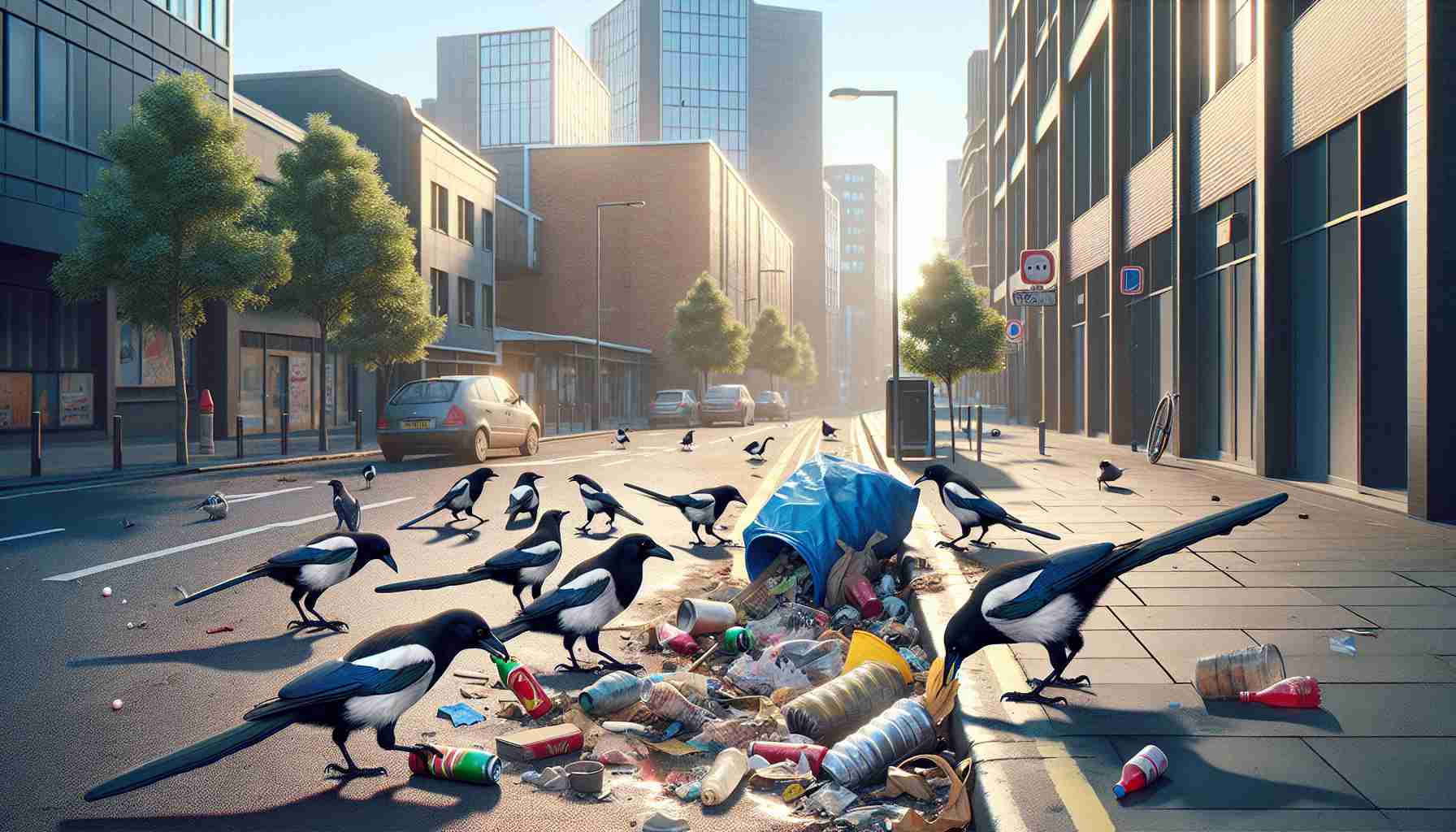Innovative Training Turns Trash into Treasure
In a fascinating experiment, computer scientist Hans Forsberg has devised a way to train magpies to assist in keeping the environment clean. In his backyard, these clever birds are learning to exchange trash for tasty treats. Forsberg’s initial observation came when he noticed the birds manipulating lantern locks, seemingly in search of the candles inside. This sparked an idea—why not teach these intelligent creatures to help out with litter?
Forsberg developed a unique bird feeder called BirdBox, where magpies can deposit litter, such as plastic wrappers and bottle caps, to receive peanuts in return. Demonstrating this concept, Forsberg shared videos of the magpies expertly dropping trash into designated slots, triggering the feeder to dispense rewards. This clever machine is a blend of mechanical design and technology, utilizing Raspberry Pi systems for detection and rewards.
Gaining trust was the first step in Forsberg’s painstaking process. He started by using timed feeders, then slowly introduced the mechanism that allowed the birds to trade trash for snacks. The magpies, known for their keen intelligence, soon learned to collect specific items, and Forsberg hopes to expand their training to include other types of litter.
With the potential for magpies to contribute to environmental efforts, Forsberg’s project has captivated many. Imagine the possibilities if nature could lend a hand in our fight against pollution!
Transforming Magpies into Environmental Heroes: The Future of Eco-Friendly Innovation
Innovative Training Turns Trash into Treasure
In an inspiring venture by computer scientist Hans Forsberg, magpies have taken on a revolutionary role in combating litter through a unique training method that turns trash collection into a rewarding game. This project not only showcases the intelligence of birds but also opens up new avenues for environmental conservation.
How the BirdBox Works
At the heart of this innovative initiative is BirdBox, a specialized feeder designed to incentivize magpies to clean up their surroundings. The device operates by allowing the birds to deposit various types of litter, including plastic wrappers and bottle caps, in exchange for tasty treats like peanuts. The system cleverly employs a Raspberry Pi for precise detection and reward dispensing, making it a prime example of integrating technology with wildlife training.
The Training Process
Forsberg’s approach began with building trust with the magpies. Initially, he utilized simple timed feeders to familiarize the birds with the concept of receiving food. Over time, he introduced the mechanism that allows them to exchange trash for snacks. This gradual process led to the magpies learning to identify and collect specific items, demonstrating their remarkable cognitive abilities.
Potential Use Cases
The potential applications of Forsberg’s training method extend beyond just magpies. Here are several insights into how this innovative concept can be adapted:
1. Urban Cleanup Initiatives: Cities could implement similar programs to encourage wildlife to assist in litter removal, reducing the burden on human cleanup crews.
2. Educational Programs: Schools could utilize projects like BirdBox to teach students about waste management and bird behavior, cultivating a greater awareness of environmental issues.
3. Community Engagement: Local communities might adopt programs that involve citizens in training birds, fostering connection with the environment and promoting collective action against pollution.
Pros and Cons of the Initiative
Pros:
– Environmental Impact: The ability of magpies to assist in litter collection could lead to cleaner urban environments.
– Educational Value: Offers a unique way to educate the public about ecology and sustainability.
– Animal Welfare: Enhances the relationship between humans and wildlife by involving them in a positive way.
Cons:
– Scalability Issues: Training a sufficient number of birds to make a significant impact may be challenging.
– Species Limitations: This method may only be applicable to select intelligent bird species, limiting its widespread adoption.
Innovations and Trends
The BirdBox project is part of a larger trend towards employing technology in wildlife conservation. As urban areas continue to grapple with pollution, innovative solutions like Forsberg’s could pave the way for future eco-friendly initiatives. The use of AI and machine learning in wildlife training could lead to further advancements, enabling more species to participate in environmental efforts.
Predictions for the Future
Looking ahead, the success of Forsberg’s method may inspire similar projects worldwide. As environmental concerns grow, the collaboration between technology and wildlife could manifest in more creative solutions. Furthermore, with ongoing developments in robotics and artificial intelligence, future innovations may enhance efficiency in training birds and other animals to take part in sustainability efforts.
Conclusion
The BirdBox initiative by Hans Forsberg not only highlights the extraordinary potential of magpies but also demonstrates how nature and technology can work together to address pressing environmental issues. As the project evolves, it holds the promise of inspiring a new generation of eco-conscious innovators eager to harness the capabilities of wildlife for a cleaner, more sustainable world.
For more information on innovative environmental solutions, visit example.com.
